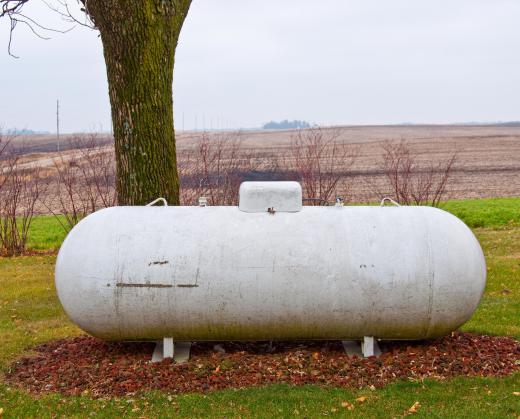A force pump is a relatively simple device used to draw liquid from a well by hand. Force pumps are considered a type of positive displacement pump because they rely on mechanical force to move water by displacing it from one location to another. An outdoor well pump in a residential yard is an example of a basic force pump.
To operate a force pump, users depress a lever or handle above the ground. Once the handle is depressed, an underground cylindrical piston is forced down into the well. As the piston passes through the water, the water is forced upward around the sides of the piston. Because of the pressure created by this force, the water flows up through an above-ground faucet at a relatively steady rate. A check valve around the piston prevents the water from flowing back down into the well.

This type of pump is often used to draw water for irrigation purposes, and many are also found in agricultural settings. Some older homes may have a small force pump located inside the kitchen to draw water from an outside source. These pumps may be used to draw liquid chemicals or lubricants in industrial or manufacturing settings. Some are found on storage tanks, such as a propane or kerosene tank. The bilge pump on a boat is also an example of a force pump design.
While the standard force pump has a single chamber for drawing water, a double-acting force pump features two separate chambers operated by a single handle and piston. As the piston moves down, water is drawn simultaneously through both chambers. This allows users to draw water more quickly, and produces a smoother and more even flow.
Force pumps are simple to install and operate. They are also relatively affordable compared to more complex pump designs, and require little maintenance. Because these pumps contain few mechanical parts, they are unlikely to break down and can be expected to last for many years.
Despite their many benefits, force pumps may not be the most effective option in certain types of applications. Because of their simple design, these pumps have a very low lift limit. This means they can only draw water from shallow bodies of water. For deep wells, buyers should choose a pump that can fit down inside the well to displace water. Force pumps are also fairly slow and inefficient, and should not be used for high volume applications.
